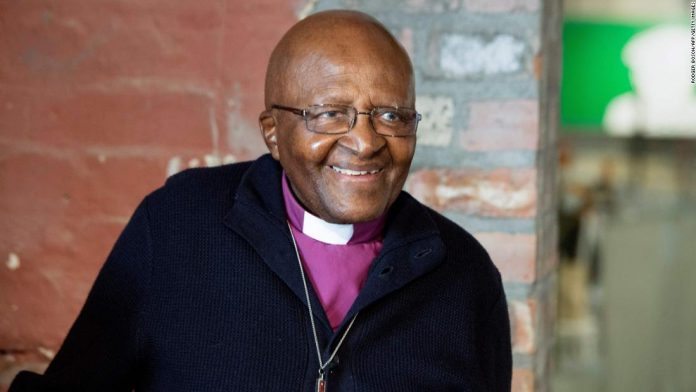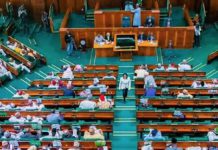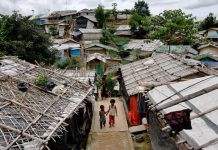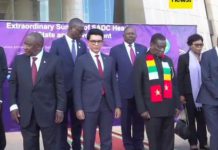Archbishop Desmond Tutu, South Africa’s Nobel Peace Prize-winning Anglican cleric whose inspiring message and conscientious work for civil and human rights qualified him as a revered leader during the struggle to end apartheid in his native South Africa, has died at the age of 90.
The South African President, Cyril Ramaphosa who confirmed his demisevia a statement expressed his condolences to Tutu’s family and friends, describing him as “a patriot without equal.”
“A man of extraordinary intellect, integrity and invincibility against the forces of apartheid, he was also tender and vulnerable in his compassion for those who had suffered oppression, injustice and violence under apartheid, and oppressed and downtrodden people around the world,” Ramaphosa said.
It was gathered that Tutu had been ill for years. In 2013, he underwent tests for a persistent infection, and he was admitted to hospital several times in following years.
For six decades, Tutu — known affectionately as “the Arch” — was one of the major voices in exhorting the South African government to end apartheid, the country’s official policy of racial segregation. After apartheid ended in the early ’90s and the long-imprisoned Nelson Mandela became president of the country, Tutu was named chair of South Africa’s Truth and Reconciliation Commission.
President Joe Biden also mourned Tutu on Sunday. “His courage and moral clarity helped inspire our commitment to change American policy toward the repressive Apartheid regime in South Africa,” the President said in a joint statement with first lady Jill Biden. “His legacy transcends borders and will echo throughout the ages.”
Most notably among his award is the 1984 Nobel Peace Prize. The Nobel cemented Tutu’s status as an instrumental figure in South Africa, a position he gained in the wake of protests against apartheid. Despite anger about the policy within South Africa, as well as widespread global disapproval — the country was banned from the Olympics from 1964 through 1988 — the South African government quashed opposition, banning the African National Congress political party and imprisoning its leaders, including Mandela.











